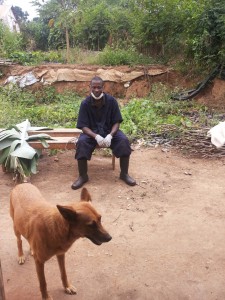Village champions: the key to combatting global health challenges.
Misuse of antibiotics is a worldwide problem in human medicine, animal health and agriculture. A recent article in the Lancet focuses on the use of top shelf antibiotics in food animals in Asia and the increasing problem of antibiotic resistance in humans. This could have a devastating effect on global health if we do not seek multi-faceted approaches.
As with many other global health challenges, the problem must not be left with the researchers, innovators, health professionals and regulators. A groundswell of village “champions” must be encouraged to step up and lead the charge, as a deliberate and considered aim in any project addressing sustainable development health goals.
In many parts of the world antibiotics are given to production animals to promote growth. This is particularly concerning for developing countries, where demand for meat products is expanding quickly and food safety regulations that specify withholding periods before slaughter and that limit specific antibiotic use in food animals are minimal.
In the agricultural setting, the problem is one of knowledge gaps and a lack of will to regulate the sale of antibiotics by companies that are invested heavily in the livestock market. And it is true to say that this is mostly a problem of large scale production and corporate regulation, requiring a solid top down approach. Certainly, international pressure is mounting on governments involved – particularly those that export to Europe and North America.
However, the problem highlights an important concept for the development sector working in small scale agriculture and community health programs as well. Bottom up approaches, with core complementary animal and human health messages are critical to addressing global health threats going forward. Such approaches involve locally appropriate and engaging knowledge exchanges on nutrition, hygiene and biosecurity, as well as the judicious use of preventative and curative drugs as the foundation for disease prevention and better health/production supporting improved livelihoods.
Village champion in Masaka Uganda. This man is a farm worker locally known to be very skilled in the slaughter of pigs. He made the whole process look easy and as painless as possible for the pig involved.
He insisted on wearing gloves and a mask and when the two young men assisting him in the slaughter mockingly said “But this is the village!” he proclaimed “Get your gloves on boys!
Picture by Eliza Smith
It is important, for example, that stakeholders are given knowledge about the appropriate use of the broader range of treatments available to them in the unregulated market in which they operate. It is not uncommon to see a company responsible for providing an appropriate vaccine for a specific a disease control program, also opportunistically plugging inappropriate use of the company’s range of antibiotics to farmers. Persons responsible for the delivery of such programs must make the argument against inappropriate use of antibiotics and indeed other treatments, not just from an animal health perspective, but from a human health and economic perspective. Everyone must be on the same page.
Local village “champions” must be the target of this messaging, so that they can be informed consumers. They will create the real impact in everyday life, beyond the course of development interventions. These people will not always be the naturally obvious leaders within the community. They are males and females, of all ages, representing a variety of educational levels, roles and vocations in the community. If the argument for judicious use of antibiotics makes sense to them according to their own resources, health and livelihood, they will lead change.



